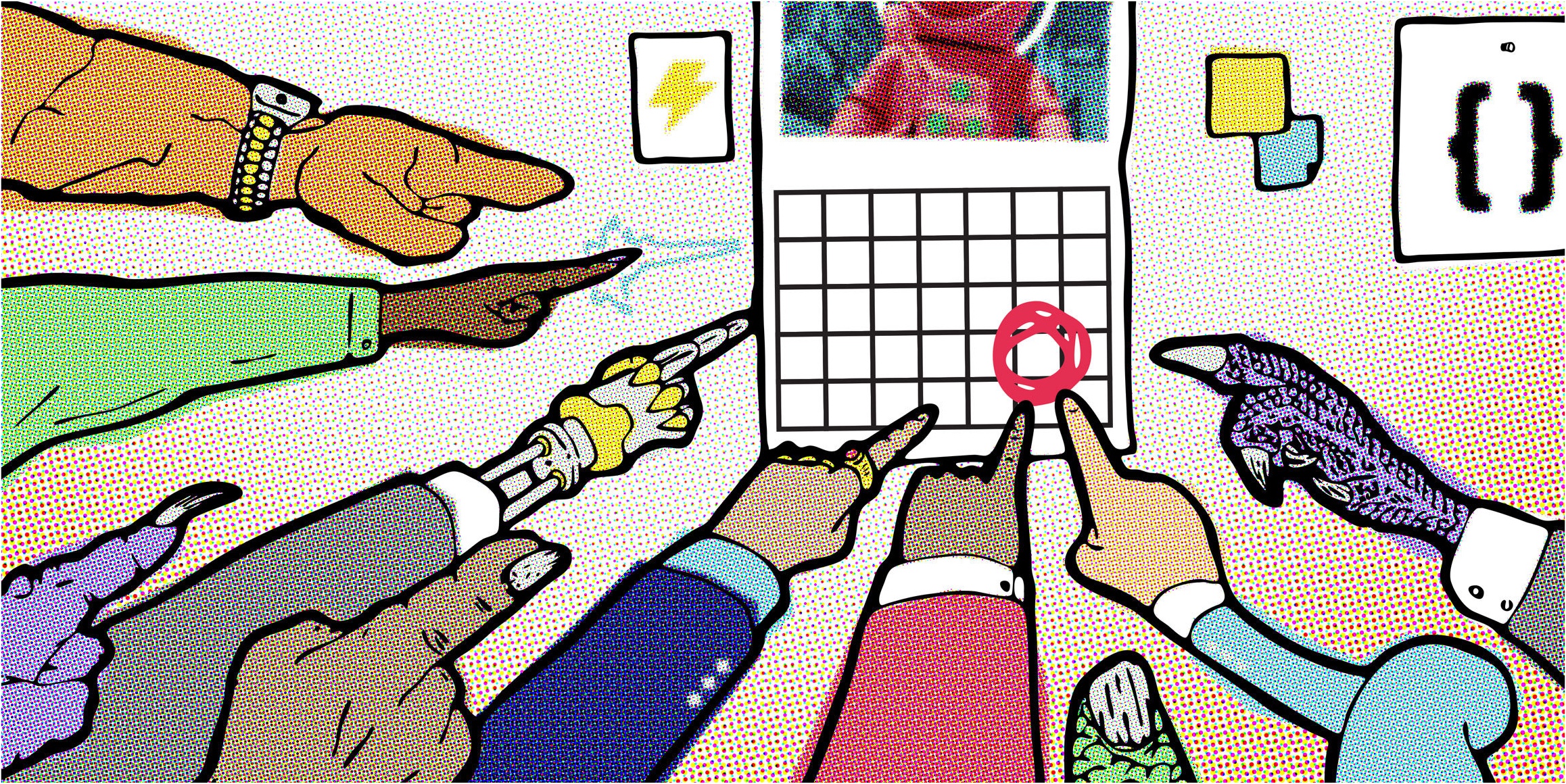When businesses decide to partner with an outside agency, they typically are looking to resolve a need. Whether a new project has come up and your in-house team is overextended, or you’re just looking for a fresh approach to an existing product, the right agency can provide a creative boost when your organization needs it most.
However, even engagements that at the outset seemed perfectly suited to resolving your issue can still fail to hit the target. Sometimes, you can attribute poor results to a bad fit or even bad luck with factors beyond your control. But an agency relationship requires a tremendous amount of time and energy to get right. You need to ensure that this collaboration delivers on your project’s goals. And remember, when you’re responsible for choosing a new partner for creative work, you’re also responsible when the results fall short.
Fortunately, you have options at your disposal that can help minimize your risk when it comes to working with an outside agency. Though there’s unfortunately no way to completely eliminate the chance of needing to go back to the drawing board for a project, there are ways to increase the odds of finding the right solution the first time.
By following these four steps, you can get the best work out of an outside agency. Even if your brand has an in-house marketing team, an outside perspective can help you keep pace in a competitive landscape.
1. Start your project right with a solid brief
Once a brand has decided to work with an agency, every project begins with a brief. Critical needs such as increased awareness, sales, and customer engagement are items on everyone’s wish list. But if you want your agency to deliver its strongest work, you have to look deeper into what’s driving your organization and its goals.
Submit a brief that’s too rich with details and defined specifications, and you can hamstring an agency’s efforts to understand your brand. But you can still craft an informative and insightful brief that limits the likelihood of encountering surprises during production.
A brand should be prepared to share whatever existing research that applies to the project your agency is working to resolve. By presenting your agency with all the facts, you can avoid the expense of revisiting ground that’s already been covered. However, where there are gaps in your information, We The Collective will use our research to view your brand’s problems from as many directions as possible.

2. Avoid surprises for both you and your outside agency
If your brand is as clear and detailed as possible in its brief, your agency will better understand whether its work ticks all the appropriate boxes. Even at this early stage, you should keep all of your project’s stakeholders informed. Too many projects are derailed by a brief that hasn't been reviewed by every internal team member.
Every project brief requires a thorough, thoughtful approach. But rather than feeling burdened by writing the brief you can see the process as a collaborative opportunity with your agency. If approached during the discovery stage, your agency can help hone your brief to address your brand’s challenges. The more information you can provide about your brand and its needs, the more likely your project will start on the right foot.

3. Know your role as guide
Like any relationship, collaborations with an outside agency are built on trust. Trust takes time to develop, especially in the early stages of an engagement. However, you can build a strong foundation by understanding the delineation between what you can do and what your agency can’t.
As you and your agency start working together, the most vital role you can play is to provide guidance. An agency partnership requires participation, especially at the brainstorming stage, but you can do the most good by ensuring your agency is on the right track.
You should share any insights that may prove critical later in the creative process. Even if it’s not an intentional oversight, no agency wants to be two weeks into their work and receive new information based upon your brand’s history.
Your creative partner should know any relevant details from your firm's history with previous agencies. If your product should not be talked about in certain ways, your agency needs to know these guidelines. Along with providing any applicable historical information, stakeholder management is one of the most critical roles you can fulfill.
By identifying any internal roadblocks that your project could encounter, your agency is free to focus on problem solving. As a result, it will then be in a better position to produce its best work.

4. Offer your agency partner problems, not solutions
When you hire an outside agency, you’re hiring them for their creative problem solving abilities. Providing clear parameters and guidance for your agency’s efforts is critical not only at the start of your engagement, but also as you provide feedback throughout your engagement.
In our experience, a client may think they’re trying to be nice by responding to creative work without additional details. Feedback that simply states “we can’t do this” or “can you change this color?” provides your agency with a blocker and a solution, but it doesn’t provide any context for the original issue.
Presenting your agency with the core problem with their approach allows it to pursue a more holistic solution. Early in your collaboration, you may feel a need to be as explicit as possible with instructions to an agency. However, as you trust the process, you’ll find that you’ll see stronger solutions by focusing on the specific problem.

An empowered agency can exceed your expectations
The agency relationship feels unique in terms of how clients engage with their hired specialists. If you approach a mechanic about an issue with your car, you primarily remain focused on a core problem, such as trouble with starting the engine. Once the mechanic has your brief, they look for the solution and present some options.
In our industry, clients too often fall back on their ideas for a solution rather than the core problem. If you focus instead on the roadblocks your brand is facing, you free your agency to help you navigate them and resolve your issue.
Once we know your problem, we can help you avoid it on this project and every one after. If this sounds like a promising approach to problem-solving for your organization, let’s talk.


